Seamless and Computer Aided Implant
Beyaz Boutique Dental
Seamless and Computer Aided Implant

ORAL IMPLANTOLOGY
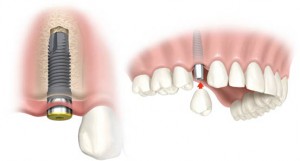
What is a dental implant?
They are artificial tooth roots made of titanium in the form of screws placed in the jawbone in order to provide the function and aesthetics of the missing teeth.
Can dental implants be applied to everyone?
Ideal people for implant applications are those with good general health and those with sufficient bone in their jawbones. Your dentist, who is trained in implantology, can easily decide whether you are a person who can be implanted.
What are the application areas of dental implants?
* In the absence of a single tooth
* In the absence of more than one tooth
* In cases of complete edentulism
What are the advantages of dental implants?
* They ensure that fixed teeth can be made without damaging the teeth adjacent to the tooth cavities.
* They provide a comfortable smile and aesthetics.
* Desired foods can be eaten.
* Dentures that play, clatter and cause pain can be used more comfortably and confidently.
Will I have any discomfort during and after the operation?
The operation can be performed under local anesthesia without any pain or discomfort. After the operation, there may be a slight pain or rarely swelling that can be heard after any tooth extraction. This can be relieved with painkillers.
How long does it take to complete the operation and prosthesis?
The duration of the surgery depends on the number of implants to be placed and the patient's conditions, on average 15-20 minutes for single implant applications; 1-1.5 hours are required for multiple implant applications.
After the operation, 2-5 months are expected for the implant and bone to fuse.
Is the success of implants guaranteed ?
Scientific studies have shown that implant success varies between 96-98%. Rarely, after the implants are placed, there may be no fusion to the bone and a new implant can be applied to replace the removed implant. The success of the implant cannot be guaranteed since each person has their own inherent characteristics.[*]
[*] Istanbul University Faculty of Dentistry
Dental Implants
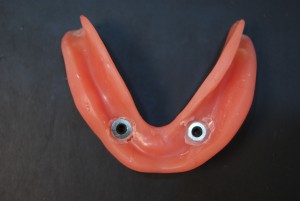
They are artificial tooth roots that are placed in the jawbone instead of missing teeth and made of suitable material. Then, with the prosthetic teeth placed on this root tooth, the lost tooth function is regained.
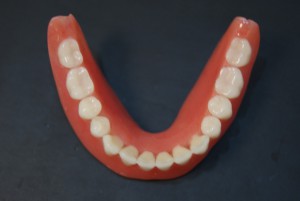
Aesthetically perfect results are also obtained. Tooth planting for the word implant; artificial tooth; false teeth; Screw thread or screw thread names are also used.
As long as the general health of the patient is good, there is no upper age limit to prevent implant application, but it is not preferred to be applied to very young patients whose bone development has not been completed.
Implants are artificial tooth roots made of titanium and similar materials that are placed in place of lost teeth. They are placed in an operation that takes about half an hour under local anesthesia. They are intended to function in the mouth for a lifetime without any problems. Since the surfaces of the implants are subjected to special processes, they form a special bond to the bone and are attached mechanically and cellularly. The ideal method is to wait between 3-6 months for the connection to occur. However, these periods may differ depending on bone support, general health status of the patient, diameter, length and surface characteristics of the implant applied.
Dental implants prevent bone loss. What does this mean? Normally, when a tooth is extracted, the bone tissue in the extracted area will melt. This is a physiological meltdown that we don't want. If an implant is applied to that area immediately after tooth extraction, this bone loss will not occur. Thus, since there is no bone loss in that area, the implant can be defined as the artificial replacement of the lost tooth. In addition to these single tooth deficiencies, the functional and aesthetic problems of edentulism are eliminated with implant applications in cases of multiple missing teeth or complete edentulism.
With the developing implant technologies, it has become possible to apply implants in almost every case today.
Today, dental implants are arguably the best alternative to natural teeth. Today, it is understood that the implant is the most studied form of dental treatment in the 21st century. When applied with correct diagnosis, sufficient knowledge, experience and equipment, dental implants are a form of treatment that can give exceptionally successful results for the patient and the physician.
According to Article 4 of the Ethical Rules that Dentists Must Follow in Publications to be Made in Electronic Media, we cannot publish photos before and after treatment.
Are there different types of implants?
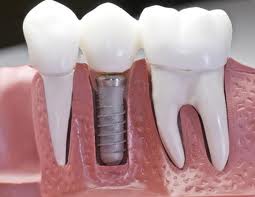
Yes. Different types of implants have been produced after serial use. However, the most popular type of implants today are the 'screw' shaped ones.
Is the treatment with the implant safe and long-lasting?
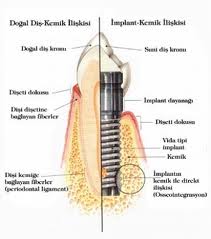
Works to produce a safe and high quality implant have been going on since 1809. Today, there are implants with a clinical follow-up of 35 years, which are very close to perfection, as well as relatively new implant brands. Your dentist will give you more detailed information on this subject.
Can the implant be used in all cases?
Implant can be used for any event, whether there is a single tooth or more than one missing tooth, if there is a sufficient amount of bone for implant placement.
Is it possible to apply implants to every patient?
Implant screws are structures that have a specific thickness and width. For this reason, the jawbone in the area where the implant is to be placed must have the height and width to accept this implant screw. The quality of the existing bone is also one of the factors affecting the success of the implant. In addition, before the treatment and as long as the implant remains in the mouth, the gums must be completely healthy. As long as the general health of the patient is good, there is no upper age limit to prevent implant application, but it may not be preferred to apply to very young patients whose bone development has not been completed.
Will I feel pain when the implant is placed?
In the case of applying appropriate anesthesia methods, no. The procedure can be performed with local anesthesia. Usually, the pain that can be felt on the evening of the implant can be relieved with simple painkillers. Many patients state that this pain is not different from the pain felt after normal tooth extraction. In cases where the treatment is completed without any problems, you will be so comfortable that you do not even feel the presence of the implants.
Can my prostheses be put on immediately after the implant is placed?
No. In order to ensure full integration of the implants with the bone (Osteointegration), the loads on the implant should be minimized during the first 3-6 months, which is the healing period. However, your doctor will restore your function by making a suitable temporary prosthesis during this recovery period.
I want to have an implant, how long is the total treatment time?
Nowadays, it is even possible to perform implant operations in just half an hour. The total time varies according to the type of operation determined according to your tooth and bone structure.
Is the cleaning of the implants important?
Yes. It is also very important. Considering that implants are foreign bodies in the mouth, you will appreciate that their cleaning is at least as important as your own teeth, or even more. Cleaning the implants is not difficult, although it requires a certain learning process. However, you need to allocate enough time for this task. What you should not forget is that the most important factor for the success of this type of treatment is regular oral care.
How is the prosthesis placed on the implants?
Prostheses to be made on implants may be of different types depending on the nature of the case. In other words, they can be removed by the patient for easy cleaning, or they can be planned to be removed only by the dentist. Both plans have advantages and disadvantages, and your doctor will explain the design that is suitable for you before your treatment begins.
Is 'one' implant required for every missing tooth?
No. If the number of missing teeth is more than '1', a single implant may serve more than one tooth, depending on the area to be implanted.
What happens if the implant screw does not fuse with the bone (not osseointegrated)?
In the case of using the right implant and method, such a possibility is negligible. This type of failure usually occurs within the first 6 months following the surgical operation. In such a case, the implant should be removed with a process as easy as tooth extraction. Following the healing of the bone in this area, a new implant can be placed, or one of the classical type prostheses can be preferred. However, in cases where more than 2 implants are placed, the remaining implants are sufficient to serve with the redesign of the prosthesis.
Is it expensive to have an implant?
Unfortunately yes. The fact that all the materials used are imported and the need for very high technology for healthy implant production determines the price of the treatment. Due to the economic conditions in our country, the increases observed in exchange rates also negatively affect the cost of treatment. However, the exact price will vary depending on the type of prosthesis you want and our specialist physicians examining you and determining whether you are a suitable patient for this type of treatment. The complexity and length of implant placement varies depending on the patient's dental health and needs, and the result can be a large investment. However, in a survey conducted after implant placement in 350 patients, it was found that the patients were satisfied with their investment and would happily do so again if necessary.
What are the risks that can be observed in implant treatment?
There is no risk beyond the risks that can be observed in all surgical procedures, inside or outside the mouth. These may occur as infections and allergies in the early period, and as inflammations due to inadequate oral hygiene in the late period after the completion of the dentures. Smoking increases the risk of infection, especially during early recovery.
What advantages does implant treatment offer in which cases?
a) Patients who have completely lost their teeth in the lower jaw and carry prosthesis:
These patients complain of constant pain (knocking) and inability to chew well due to the movement of the prosthesis. This complaint increases over time with the melting of the bone tissue that supports the prosthesis. In such patients, implant treatment not only eliminates all the above complaints, but also stops the bone from resolving.
b) Patients who have completely lost their teeth in the upper jaw and carry prosthesis:
Although upper prostheses are more stable than lower jaw prostheses, the design of the prosthesis that covers the palate can cause nausea.
c) Patients who have lost some of their teeth in the lower or upper jaw:
The complaints of these patients can be counted as the ugly appearance of the prosthesis attached with hooks, or the necessity of having their healthy teeth cut in order to make a bridge.
d) Patients who have lost a single tooth:
These patients have to sacrifice at least two adjacent teeth for the restoration of a single tooth. Placing a single implant not only saves neighboring teeth, but also leads to more aesthetic and functional results. Gingival recession is also not observed and aesthetically more perfect results are obtained.
